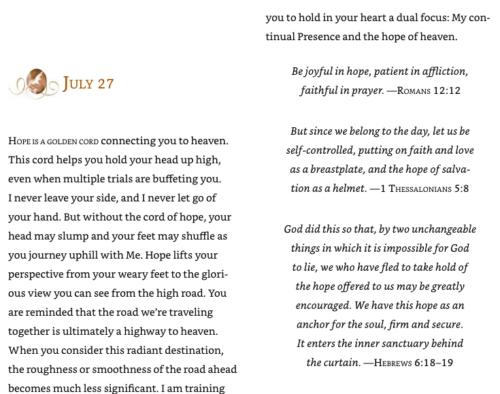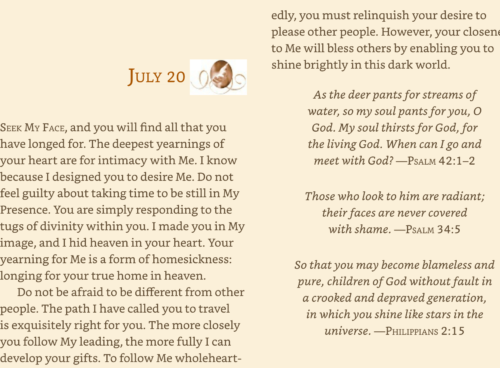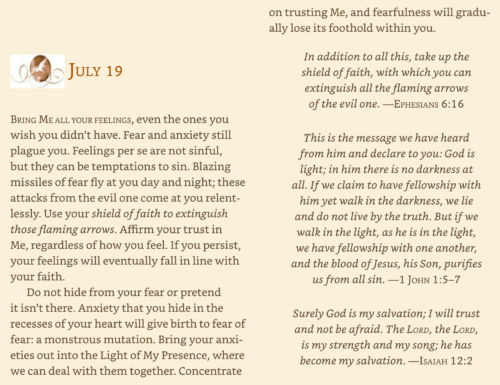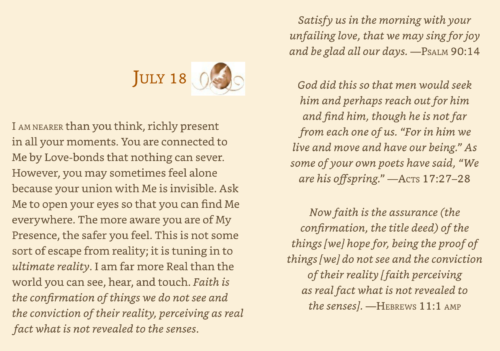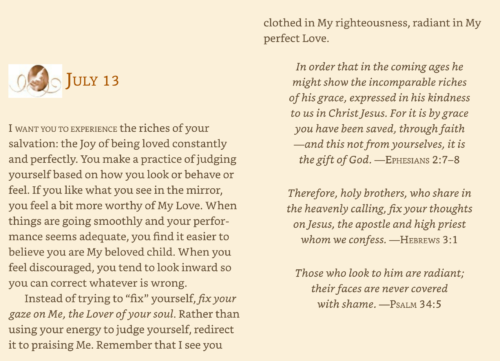Remain in Relationship
“Jesus said, “Remain in me, as I remain in you. Just as a branch cannot bear fruit on its own unless it remains on the vine, so neither can you unless you remain in me. I am the vine, you are the branches. Whoever remains in me and I in him will bear much fruit, because without me you can do nothing. . . . As the Father loves me, so I also love you. Remain in my love.”
—John 15:4–5, 9
This year’s Daily Meditations theme is “Nothing Stands Alone,” a truth revealed in God as Trinity and throughout all of creation. This week we explore how listening with depth, respect, and even reverence is key to building and maintaining loving relationships. In this homily, Father Richard speaks of Jesus’ desire for us to remain connected:
I want you to be honest: Would you rather have a friend who is always right or one who is in right relationship with you? I think I know the answer: We’d rather have someone who’s in right relationship with us. In fact, someone who’s right all the time can be pretty obnoxious. Would we rather have a friend who’s always correct or a friend to whom we’re always connected? Of course, we’d rather have the second.
So why did we in the West seemingly change the rules for God? Many of us grew up thinking God wanted us to be right, to be correct, even to be perfect. What this passage in John’s Gospel is saying is that God wants people who are in right relationship, which means that we are open, and that we can listen to others with understanding and compassion. It means that we can admit when we’re wrong, which is almost every day for most of us. It certainly is for me.
And yet we keep condemning ourselves and others for not being perfect, for not being right, for not being correct. This parable, really one of the most beautiful in all the gospels, tells us what God desires—simply that we remain connected, a branch on the vine, which is the love of God.
“Jesus said, “Remain in me, as I remain in you. Just as a branch cannot bear fruit on its own unless it remains on the vine, so neither can you unless you remain in me. I am the vine, you are the branches. Whoever remains in me and I in him will bear much fruit, because without me you can do nothing. . . . As the Father loves me, so I also love you. Remain in my love.”
—John 15:4–5, 9
This year’s Daily Meditations theme is “Nothing Stands Alone,” a truth revealed in God as Trinity and throughout all of creation. This week we explore how listening with depth, respect, and even reverence is key to building and maintaining loving relationships. In this homily, Father Richard speaks of Jesus’ desire for us to remain connected:
I want you to be honest: Would you rather have a friend who is always right or one who is in right relationship with you? I think I know the answer: We’d rather have someone who’s in right relationship with us. In fact, someone who’s right all the time can be pretty obnoxious. Would we rather have a friend who’s always correct or a friend to whom we’re always connected? Of course, we’d rather have the second.
So why did we in the West seemingly change the rules for God? Many of us grew up thinking God wanted us to be right, to be correct, even to be perfect. What this passage in John’s Gospel is saying is that God wants people who are in right relationship, which means that we are open, and that we can listen to others with understanding and compassion. It means that we can admit when we’re wrong, which is almost every day for most of us. It certainly is for me.
And yet we keep condemning ourselves and others for not being perfect, for not being right, for not being correct. This parable, really one of the most beautiful in all the gospels, tells us what God desires—simply that we remain connected, a branch on the vine, which is the love of God.
Everybody seems to be trying to prove that they are right. We have almost a collective incapacity to admit failure, to ever admit that we are wrong, which makes us liars most of the time. Jesus is calling forth a very different kind of human being.
Jesus says people who live the vulnerable life of connection and relationship will bear much fruit. These are the people we trust, like, and admire. And yet so many of us are afraid to be the very thing that we admire the most. How foolish human beings are! But again, Jesus has told us the way: he is the vine. We are the branches. None of us can be or need to be correct, but we can always be connected.
Compassionate Listening
Father Richard shares his experience of how challenging it is to hear each other without agenda or defensiveness:
Can we take responsibility for the fact that we push people to polarized positions when we do not stand in the compassionate middle? I think of how often, during my talks, someone raises a hand and says, “I disagree with what you just said.” Often, they did not hear or understand what I said, and they don’t have the humility to ask, in a non-accusatory way: “Did I hear you correctly in saying . . . ?” or “What do you mean when you say . . . ?” Of course, sometimes I am wrong, but such a mentality does not encourage dialogue or mutuality. Unfortunately, my response also often suffers because of the negative energy generated. I am then defensive or biting my tongue to control my own judgments or desire to attack back. The result is a half response, at best, because the environment is not safe and congenial.
Responses of this sort are usually full of assumptions: “I did understand you. I know your motivation. I know what you’re trying to say. Therefore, I actually have the need and right to attack you.” Normally, neither person grows or expands in such a context. The truth is not well served, because neither individual feels secure, respected, or connected. Unfortunately, this has become the state of our public discourse.
Fortunately, there will always be people who have the grace and the ability to engage in reflective listening, to ask, “Richard, did I understand what you were saying?” and repeat back to me their perception of what I said. Normally then I can clarify, or perhaps admit that I have communicated poorly or am, in fact, incorrect. When we can listen and respond in that way, each person is treated with the respect and dignity they deserve as children of God. Each person feels heard, and misunderstandings are clarified compassionately.
Unfortunately that is not the way the ego likes to work. Opposition gives us a sense of standing for something, a false sense of independence, power, and control. Compassion and humility don’t give us a sense of control or psychic comfort. We have to be willing to let go of our moral high ground and hear the truth that the other person may be speaking, even if it is only ten percent of what they are saying. Compassion and dialogue are essentially vulnerable positions. If we are into control and predictability, we will seldom descend into the vulnerability of undefended listening or the scariness of dialogue. If we are incapable of hearing others, we will also be incapable of hearing God. If we spend all day controlling and blocking others, why would we change when we kneel to pray?
